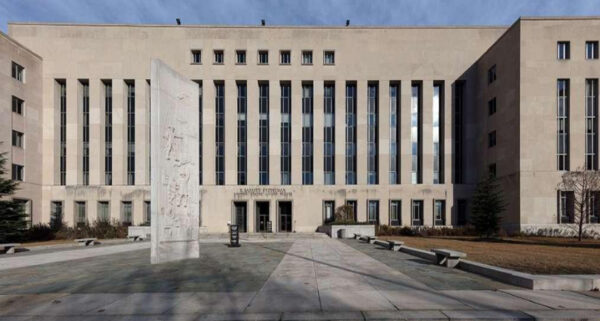
The MSPB system exists, but who is it serving now?”
When Independence Becomes Illusion: What the Erosion of the MSPB Means for Federal and Military Fairness
For nearly half a century, Congress intended the Merit Systems Protection Board to serve as a quiet but essential guardian of fairness, an independent forum where federal employees could challenge unjust personnel actions without fear of political retaliation. That independence was not an accident. It was a deliberate legislative choice, born of historical abuses, designed to ensure that careers in public service would rise or fall on merit, not on politics.
Today, that vision is in jeopardy.
In recent months, a series of developments, judicial, administrative, and structural have converged to fundamentally weaken the MSPB’s ability to function as Congress intended. What was once an independent adjudicatory body increasingly resembling a procedural bottleneck: nominally restored, but substantively constrained.
The D.C. Circuit’s January 9 decision declining to rehear Harris v. Bessent marked a quiet but consequential turning point. By allowing a panel decision to stand that casts doubt on statutory protection shielding MSPB members from at-will presidential removal, the court effectively signaled that the Board’s independence is constitutionally suspect. The reasoning rests on the idea that the MSPB exercises “substantial executive power” and therefore must be directly accountable to the president. That framing collapses the distinction Congress carefully built between executive enforcement and neutral adjudication.
As Lawfare observed in its recent analysis, this reasoning places the MSPB squarely in the crosshairs of modern separation-of-powers doctrine. Once the Board is treated as an extension of executive authority rather than a buffer against it, the premise of impartial review begins to erode. Independence becomes performative, existing in name, but not in function.
This erosion did not occur in a vacuum. For much of the past year, the MSPB lacked a quorum altogether, rendering it unable to issue final decisions. During that period, federal workers successfully argued in court that pursuing administrative relief would be futile. Judges agreed. Lawsuits moved forward. For a brief moment, access to Article III courts provided a meaningful alternative when the administrative system failed.
That window has now largely closed.
With the Senate’s confirmation of a new Board member restoring a quorum, the MSPB is technically operational again. But restoration of form does not equal restoration of justice. The Board returns burdened by a massive backlog and operating under a legal cloud that undermines its structural independence. For tens of thousands of federal employees, this means a return to mandatory administrative exhaustion, long delays, uncertain outcomes, and limited judicial review before ever setting foot in a courtroom.
For civil servants, this is more than an inconvenience. It is a narrowing of practical access to justice.
And for military service members, the implications are even more sobering.
Although uniformed service members often navigate separate statutory regimes, the logic now applied to the MSPB does not stop at civilian agencies. Military correction boards, discharge review boards, and administrative tribunals operate on similar assumptions of deference and internal review. When courts weaken the independence of civilian adjudicatory bodies, the ripple effects reinforce a broader judicial posture: one that increasingly favors executive control over independent review in personnel matters.
Congress never intended merit-based protections to function this way. The MSPB was designed as a shield, not a speed bump. It was meant to provide fair, neutral adjudication precisely because courts recognized the danger of politicized employment decisions within government. By insulating Board members and empowering them to decide cases free from executive pressure, Congress sought to preserve both fairness and public trust.
What we are witnessing now is a slow inversion of that design.
A board that can be restructured, influenced, or constrained through removal power and judicial reinterpretation cannot credibly promise impartiality. A system that forces employees into years-long administrative limbo before permitting judicial review does not meaningfully protect due process. And a legal framework that treats adjudicators as mere extensions of executive authority undermines the very concept of neutral review.
This moment calls for clarity, not partisanship.
If fairness and independence remain core values in federal service, Congress must confront the gap between its original intent and present reality. That may require statutory reform, clearer jurisdictional pathways to federal court, or renewed protections for adjudicatory independence. Without such action, the merit system risks becoming an artifact of history rather than a living safeguard.
For federal employees and service members alike, justice delayed and independence diluted is justice denied.
About Military Defense Law
Military Defense Law is published by the Law Offices of David P. Sheldon, PLLC, providing analysis and advocacy on military justice, federal employment law, and the constitutional rights of those who serve.
Disclaimer
This article is for informational purposes only and does not constitute legal advice. Reading this article does not create an attorney-client relationship. Individuals facing adverse personnel actions should consult qualified legal counsel regarding their specific circumstances.
Citations & References
- Harris v. Bessent, U.S. Court of Appeals for the D.C. Circuit (panel decision; rehearing denied Jan. 9, 2026).
- Lawfare, The Merit Systems Protection Board’s Independence Is Dead.
- Politico, West Wing Playbook, reporting on MSPB quorum restoration and implications for federal court access.
- Civil Service Reform Act of 1978, Pub. L. No. 95-454.




